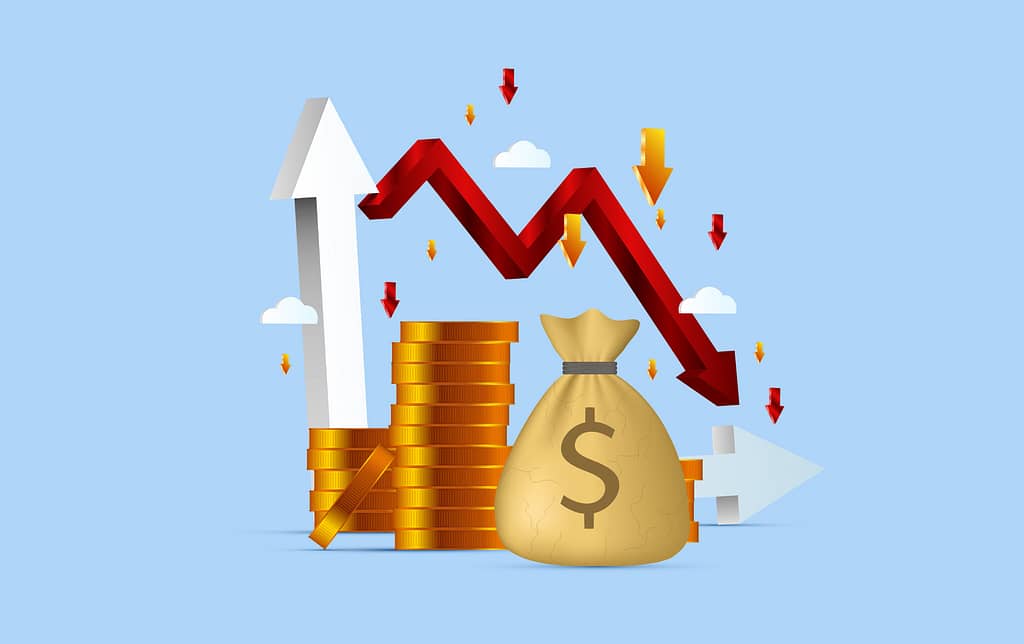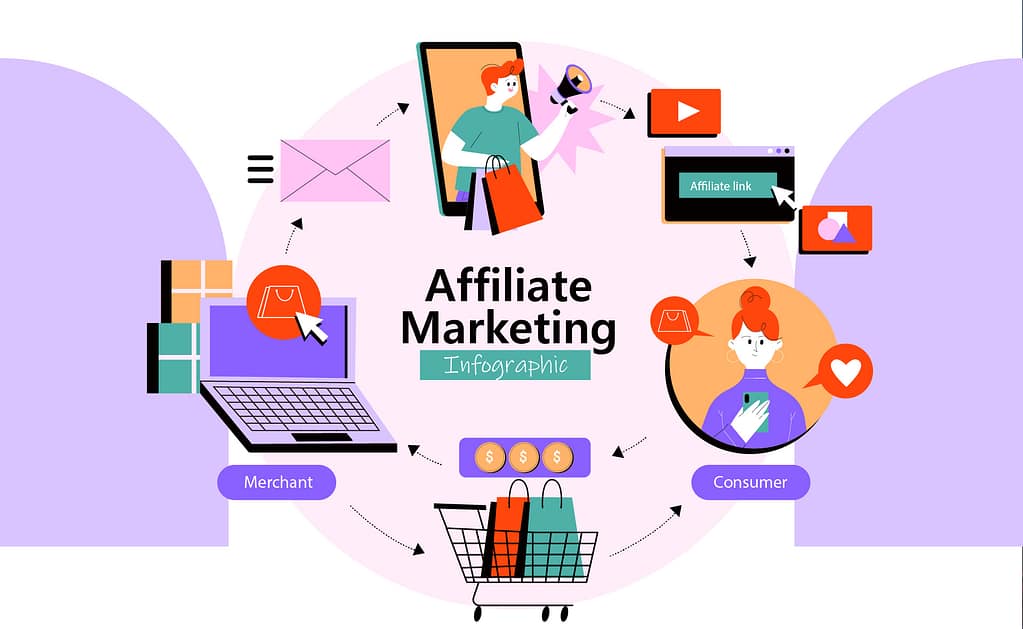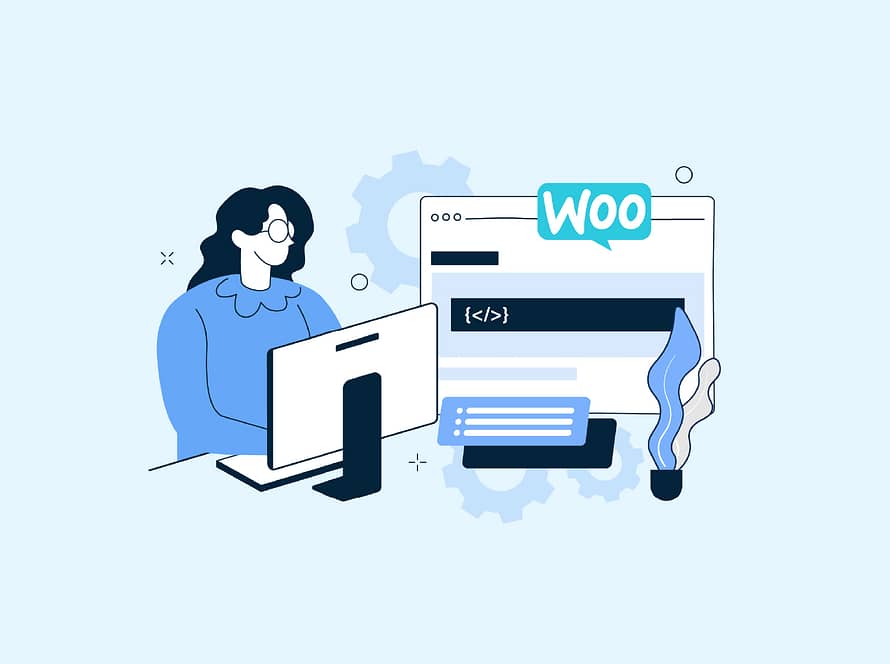Marketing is the lifeblood of any business, especially for small enterprises. It helps build brand awareness, attract customers, and drive growth. Without a solid marketing strategy, small businesses may struggle to reach their audience, making investment in marketing crucial for long-term success.
Here’s why marketing matters:
Brand Awareness: Marketing helps people discover your business. Without it, you’d be a hidden gem in a vast sea of competitors.
Lead Generation: Effective marketing generates leads, turning potential customers into actual buyers.
Sales Boost: By showcasing your offerings, marketing encourages sales. It’s like inviting guests to a party—you want them to enjoy what you’re offering!
Customer Loyalty: Consistent marketing builds brand loyalty.

Marketing Strategies for Small Businesses
Now, let’s explore some practical marketing strategies:
- Build a Functional Website: Your online presence matters. Create a unique & attractive website with good & high-quality images.
- Social Media Marketing: Leverage platforms like Facebook, Instagram, and LinkedIn. Engage with your audience and build a community.
- Content Marketing: Write blog posts, create videos, or host webinars. Share knowledge related to your industry. Valuable content attracts potential customers.
- Email Marketing: Collect email addresses and send regular newsletters. Provide value, share updates, and promote special offers.
- Influencer Marketing: Collaborate with well-known figures in your industry. Having their support might increase your credibility.
- Local Business Collaboration: Team up with neighboring businesses. Joint promotions benefit both parties.
- SEO (Search Engine Optimization): Make your website search engine friendly. Make use of pertinent keywords to raise your position.
- Cold Email Marketing: Craft personalized emails to potential clients. Be respectful and offer value.
- Discounts & Incentives: Everyone enjoys a good bargain. To draw in and keep clients, provide loyalty plans or incentives.
- Blogging: Post blog entries on a regular basis to your website. Talk about your observations, triumphs, and business news.

Benefits of Marketing:
- Increased Visibility: Marketing ensures that your business is seen by potential customers. Whether through ads, social media, or content, increasing visibility ultimately leads to stronger brand recognition.
- Customer Engagement: Effective marketing engages your audience. It encourages interaction, feedback, and loyalty. Engaged customers are more likely to make repeat purchases.
- Brand Trust: Relentless promotion fosters trust. Customers are more inclined to select your goods or services when they are familiar with your brand and believe it to be of high quality.
- Sales Growth: Marketing drives sales. By promoting your offerings, you attract new customers and retain existing ones.
- Influencer Marketing: Collaborate with well-known figures in your industry. Having their support might increase your credibility.

Cost-Friendly and Effective Marketing Strategies:
- Content Marketing: Creating valuable content (blogs, videos, infographics) costs less than traditional advertising. It educates your audience and establishes authority.
- Social Media Advertising: Targeted ads on platforms like Facebook and Instagram allow you to reach specific demographics without breaking the bank.
- Email Marketing: Sending newsletters and personalized emails is cost-effective. It nurtures leads and keeps your brand top-of-mind.
- Local SEO: Optimize your website for local searches. It’s free and helps you appear in local listings.
- Referral Programs: Encourage current clients to recommend new clients. Give them something for a successful recommendation.
- Collaborations: Partner with complementary businesses for joint promotions. It expands your reach without significant costs.
1. Guerrilla Marketing
Guerrilla marketing is all about unconventional, low-cost tactics that create a big impact. It’s like a surprise party for your audience. Here are some guerrilla marketing ideas:
Street Arts: To capture attention in public spaces, try using chalk art, graffiti, or temporary installations. These creative expressions can effectively engage passersby and leave a lasting impression.
• Flash Mobs: Organize spontaneous performances related to your brand or product.
• Stunts: Create memorable moments—think of the Red Bull Stratos space jump!
2. Storytelling Marketing
Humans love stories. Use storytelling to connect with your audience emotionally:
• Origin Story: Share how your business started. People love to know the backstory.
• Customer Stories: Highlight success stories of your customers using your product or service.
• Behind the Scenes: Show the human side of your business—introduce your team, workspace, and processes.
3. Viral Marketing
Viral content spreads like wildfire. While it’s hard to predict what will go viral, you can try:
- Challenges: Create a fun challenge related to your brand. Remember the Ice Bucket Challenge?
- Shareable Content: Infographics, memes, and short videos are shareable and can go viral.
4. Community-Based Marketing
Build a community around your brand:
- Local Events: Sponsor or organize local events. Be part of community gatherings.
- Online Forums: Participate in relevant forums and provide value. Be genuine, not overly promotional.
Encourage clients to post about their experiences on social media to create user-generated content.
5. Influencer Marketing
We mentioned this earlier, but it’s worth emphasizing:
Micro-Influencers: Collaborate with smaller influencers. They have engaged followers and are often more cost-effective.

6. Affiliate Marketing
Affiliate marketing is collaborating with other companies or people to advertise your goods and services. This is how it operates:
- Affiliates: These partners earn a commission for every sale they generate through their unique referral links.
- Cost-Effective: You pay only when a sale occurs, making it budget-friendly.
- Wide Reach: Affiliates can reach audiences you might not have access to directly.
7. Mobile Marketing
Mobile devices are ubiquitous. Optimize your marketing for mobile users:
- SMS Marketing: Send targeted text messages with special offers or updates.
- Mobile Apps: Create a branded app for your business. Offer convenience and exclusive content.
- Location-Based Marketing: Use geolocation to send relevant offers when users are near your physical store.
8. Remarketing (Retargeting)
Have you ever visited a website and then seen ads for that site everywhere? That’s remarketing:
- Targeted Ads: Show ads to users who previously visited your website or interacted with your brand.
- Boost Conversions: Remind potential customers about your offerings.
9. Video Marketing
Video content is engaging and memorable.
- Explainer Videos: Explain your product or service concisely, visually, and appealingly.
- Live Streaming: Host live Q&A sessions, product demos, or behind-the-scenes glimpses.
- YouTube Channel: Create and share valuable content on YouTube.
10. Data-Driven Marketing
Use data to inform your decisions:
- Analytics Tools: Track website traffic, user behavior, and conversion rates.
- A/B Testing: Test different versions of ads, emails, or landing pages to see what works best.
- Personalization: Customize marketing messages based on user preferences.
FAQs
1. First, What Is Marketing?
All of the actions used to promote goods, services, or brands are included in marketing. It entails producing value, comprehending client demands, and successfully communicating.
2. How Can I Market My Small Business on a Tight Budget?
- Content Marketing: Create valuable blog posts, videos, or infographics.
- Social Media: Leverage platforms like Facebook, Instagram, and LinkedIn.
- Local SEO: Optimize your website for local searches.
- Email marketing: Provide your audience with newsletters.
3. What’s the Difference Between Marketing and Advertising?
- Marketing: A broader concept that includes research, strategy, and promotion.
- Advertising: Specific promotional activities (e.g., TV ads, online banners).
4. How Do I Measure Marketing Success?
- Key Performance Indicators (KPIs): Track metrics like website traffic, conversion rates, and social media engagement.
- ROI (Return on Investment): Measure the value generated from marketing efforts.
5. Is Influencer Marketing Effective?
Yes! Collaborating with influencers can expand your reach and build credibility.
6. How Does SEO Affect Marketing?
SEO (Search Engine Optimization) raises the search engine prominence of your website. It’s essential to organic traffic growth.
7. How Do I Produce Interesting Content?
Recognize Your Audience: Adapt material to suit their preferences.
8. Should I Invest in Paid Advertising?
- Paid ads (Google Ads, Facebook Ads) can be effective if targeted properly.
- Start small, test, and optimize.
9. How Do I Build Brand Loyalty?
- Consistency: Deliver on promises consistently.
- Customer Experience: Provide excellent service.
- Engagement: Use social media to communicate with customers.
10. What’s the Future of Marketing?
- Personalization: Tailoring experiences to individual preferences.
- AI and Automation: Streamlining processes.
- Ethical Marketing: Transparency and Social Responsibility.




